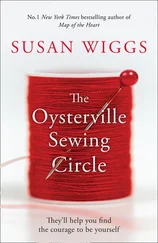1 ...8 9 10 12 13 14 ...18 Bitter guilt seared his throat. From the time they were children in the orphanage, he had promised Carrie he’d look out for her. But the deadly bleeding was a shadow enemy. He couldn’t beat it in a fistfight or run away from it. He had to put all his faith in an ill-tempered lady doctor who clearly had no respect for him and not a whole lot of compassion for Carrie.
Fear had become a familiar companion to Jackson. His life had been, for the most part, a series of horrifying incidents, from the moment his mother had abandoned him on a stoop in Chicago to the moment he’d fled Texas with a man’s blood on his hands. But this fear was sharper and colder than anything he’d ever felt.
He hated being in this position. Helpless. Without choices. Powerless to do anything. God, how long was this thing going to take? he wondered.
Grim silence shrouded the surgery. The lady doctor and her assistant weren’t saying a word. Carrie was under ether, blessedly senseless, thank God. The only sound came from a wood-cased mantel clock. The incessant ticking pounded out a hammer rhythm to Jackson’s anxiety, seized his mind and wouldn’t let go.
Gritting his teeth, he forced himself to stop pacing. The outer office was snug and painfully neat with apothecary jars lining one wall and shelf after shelf of textbooks. Above a woodstove hung a picture of a misty green-and-gold island with palm trees nodding over a calm bay. For a moment, Jackson stared at it.
Paradise. He could almost smell the perfume of exotic flowers, hear the call of colorful birds. He wondered if such a place actually existed.
Hungry for a distraction, he moved into the tiny inner office. Ah. Here, at least, was a bit of evidence that Dr. Leah Mundy actually had a life. That she was not some clockwork female sawbones who snapped out orders and intimidated people into getting better. Several diplomas lined one wall. Jackson had never actually seen one up close before, and he was fascinated by the scrolling script that spelled out high honors and important degrees.
She had attended institutions that sounded both imposing and exotic—Great Western, Beauchamps Elysées, Loxtercamp Hospital. She had read books such as Delafield & Pudden’s Pathology and Osteology of the Mammalia. Tucked between the medical tomes was one slim volume. He had to tilt his head to read the title: Ships that Pass in the Night: A Tragic Love Story by Beatrice Harraden.
An educated woman. Jackson was fairly certain he had never met one before.
He picked up a framed tintype of Leah and a bewhiskered gentleman. Jackson squinted at the image. A father. He had no idea what it felt like to have one; he’d been told he was sired by a Nordic lumberjack at a Chicago brothel.
He’d never allowed himself to care about not having a father. But he could tell from the expression on Leah Mundy’s face in the picture that she cared very much. Her hand gripped his arm. Her other hand held a rolled certificate—one of the diplomas on the wall? The bearded man exuded a chilly hauteur while Leah beamed with the eagerness of a pup.
Something had happened since then to beat her down. She was smart as a seasoned cardsharp. When she did her doctoring, she exuded competence and control. But she’d lost that bright sparkle in her eye. What happened to you, Leah Mundy? he wondered.
Was it the death of her father, or had something else soured her spirits? Whatever it was, it had turned her from a smiling, eager young woman into a somber, authoritative physician whose only pleasure seemed to be in work.
Was that what made Leah Mundy unique? What made her seem so very sharp, so special, so competent?
Or was it that she held Carrie’s life in her hands?
With a muttered oath, he started pacing again. Carrie. For years she had been his quest, his purpose; sometimes she was his only reason for getting up in the morning.
She had been no more than nine years old when he’d first laid eyes on her. He recalled the moment vividly, because it was the first time in his life that he’d dared to believe angels were real. Even standing in the dingy foyer of the Chicago orphan asylum, Carrie seemed to transcend the squalor, her eyes fixed on some point far beyond the busy roomful of orphans and wardens.
She reminded Jackson of a painting he’d once seen in church—a pilgrim filled with the quiet ecstasy of her first sight of God. The other children whispered that Carrie—as beautiful and delicate as a moth—was strangely empty, that she had no soul.
He knew he was the only one who could protect her. He had endured hell in her defense: bloodied nose, broken finger, twisted arm. The rewards were sparing, but he cherished them all the more for their scarcity. She’d smile or squeeze his hand or whisper that she loved him—just often enough to make him believe her. And with just enough sincerity to make him believe she knew how to love.
He glanced again at the surgery door. He tried to think of Carrie having a kid, but his imagination wouldn’t cooperate. She wouldn’t know the first thing about babies. Ever since that accident back at St. I’s when an infant in Carrie’s ward had died and she’d been sent in disgrace to the isolation room, she’d never spoken of babies, never looked at one, never held one.
Then one day, Carrie had disappeared from the orphanage. He remembered waiting for her outside the girls’ ward as he always did, the corridor stinking of piss and borax. But she hadn’t come out. Brother Anthony had informed Jackson—cuffing him on the ear for the impertinence of asking—that Carrie had been adopted.
He’d felt something implode inside him. Not from the blow; he was used to beatings. But from the news Brother Anthony had delivered. Jackson knew what it meant when a girl like Carrie was “adopted.” Pimps were always on the lookout for new, pretty girls. Brother Anthony and Brother Brandon were always on the lookout for ways to line their pockets.
What happened next came back in broken images, shattered by the violence that followed. Sharp fragments of remembrance stabbed at the back of his mind.
He had lunged at Brother Anthony, seized the portly man, shoved him against the seeping wall of the corridor. “Where is she, you son of a bitch? Who took her?” Jackson’s fierce, boyish voice echoed through the cavernous hallway of the tenement.
“Long…gone, damn you to the eternal fires,” Brother Anthony choked out, his eyes bulging as Jackson’s thumbs pressed on his windpipe. Jackson was a strapping boy despite the poor diet and poorer treatment he’d suffered over the years.
“Where?” he persisted, feeling an ugly pressure behind his eyes. Rage swept over him like a forest fire, burning out of control. The fury was a powerful thing, and his young mind absorbed its force. This, he knew then, was what drove men to murder. “Where?” he asked again. “Where? Where?”
“Already heading…down the Big Muddy—” Brother Anthony stopped abruptly. Strong arms grabbed Jackson from behind. Fists clad in brass knuckles beat him senseless. He’d awakened hours or days later—he couldn’t tell which—in a windowless cell in the basement. One eye swollen shut, a constant ringing in his ears, broken rib stabbing at his midsection. It had taken him days to recover from the beating, and still longer to ambush the luckless boy who brought him his daily meal. Then Jackson had burst out into the street—to freedom, to danger, to the desperation of an outlaw on the run.
He drifted from town to town, from logging camps in the northern woods to army forts and outposts in the West, from little farming villages where people pretended not to see him to big dirty cities where everyone, it seemed, was part of a confidence game. Jackson had mastered the trade of a cardsharp and gunfighter. He crewed on Lake Michigan yachts in the summers, learning the way of life that had captured his imagination. He was like a leech, finding a host, sucking him dry, moving on.
Читать дальше












